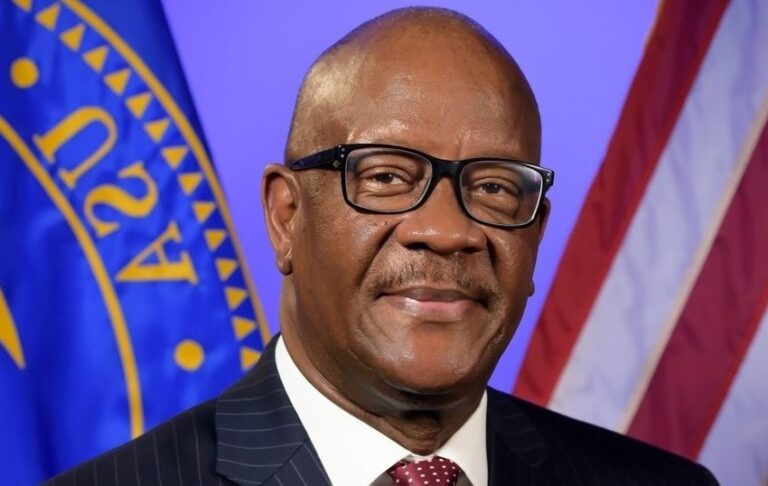There is a lot of talk and calls, a lot of pronouncements and some actions at the court level to tackle the drug abuse menace that is landing many of the country’s youth in mental homes, a situation that should and can be addressed now, given that political will is exercised in the interest of saving the youth, not making political gravy points from an issue that is a serious existential threat to the nation.
If the government of Sierra Leone is serious about tackling mental health as it relates to drug abuse, then there should be a synergy of all the stakeholders involved in this struggle.
A meeting point of all those involved in the use, sale and importation of illicit drugs, including government agencies, advocacies and members of the public.
A community approach is being proposed in line with the African adage that ‘it takes a village to raise a child’.  It will take corporate effort backed by strong political will to nip this trend in the bud before it degenerates into the kinds of social situation we see in western countries struggling with widespread abuse of controlled substances and its subsequent impact on the mental health of drug abusers.
It will take corporate effort backed by strong political will to nip this trend in the bud before it degenerates into the kinds of social situation we see in western countries struggling with widespread abuse of controlled substances and its subsequent impact on the mental health of drug abusers.
The first and most important weapon in our arsenal for the fight against drug abuse and its attendant mental health issue is the Sierra Leone Police –SLP force. No other public institution in this country is as critical in this national effort than the SLP.
But while they can still make a difference the police especially the top brass have routinely been accused as being responsible for turning a blind eye to drug dealers and instead focused on arresting drug addicts. The police can use their sources in the communities, bilateral agencies and the general public to intercept and arrest drugs, smugglers and dealers. But they have performed poorly when it comes to making big discoveries and arrests, leading people to believe that they are complicit in the drugs trade.
Apart from the police other members of the security sector must also be roped in including the Office of National Security – ONS, the Republic of Sierra Leone Armed Forces (RSLAF/Army), the Ministry of Internal Affairs, the Coast Guard or Sierra Leone Navy, Immigration Department (Home Affairs), Correctional Services (Prisons) among others to address the drug issue that is landing our youth in mental homes across the country.
As a matter of urgency, those tasked with sorting out this youth killing menace should hold engagements with drug dealers and addicts. We need to find out why they sell and do drugs respectively. We cannot address the problem unless we get to the root of the matter.
However, in spite their arrests and some sentenced to serve and are serving time, young men and women continue to sell drugs. It is very important to this fight for those involved to look for ways to address why these people sell drugs and come up with alternative solutions to their problems.
Drug addiction is a hell no one was meant to experience. It brings out the worst in those who make using illicit drugs a habit. A lot of drug addicts don’t know the seriousness or the difficulty in trying to quit drugs. They get into using controlled substances for many reasons and those involved in the fight must discover how and why people get involved in abusing drugs. This would require the intervention of social workers and mental health professionals.
In a nation where the overwhelming majority believes in God, the involvement of the interreligious council is important in this fight to address mental health as it relates to drug abuse. More than any other group, religious leaders appeal to the morality of the addicts and peddlers thereby giving them assurance of God’s assistance, forgiveness and justification of their actions.  Many people have reportedly quit doing drugs after having an experience with God.
Many people have reportedly quit doing drugs after having an experience with God.
Young people who persistently abuse substances often experience an array of problems, including academic difficulties, health-related problems (including mental health), poor peer relationships, and involvement with the juvenile justice system. They can be seen around town looking dishevelled, sore ridden and begging for alms to meet their cravings for drugs.
In the fight to prevent and control drug addiction and so impact on youth mental health, the youth must be taught how to avoid undue peer pressure, get education and counselling, seek help from parents and peers, look for danger signs for relapsing back into addiction after quitting, and seeking professional and medical assistance.
To prevent using drugs as a reward, those involved in the fight must help the youth find other ways to handle stress and unwind like taking up exercising, reading a good book or watching movies, volunteer with the needy, create something. Anything positive and relaxing will help take their minds off using drugs to relieve stress.
Finally the fight against drug abuse as it relates to mental health will not find success if our elected public servants or leaders are not central to the fight.
Apart from sounding the bugle, they are the nation’s moral compass and fountain of honour. They will be needed to pass the necessary laws and prevention instruments necessary in the fight. They will need to ensure the people of their non-involvement in the drug trade by being harsh on importers and dealers and merciful and lenient with drug users who they will view from a mental health or medical standpoint.













